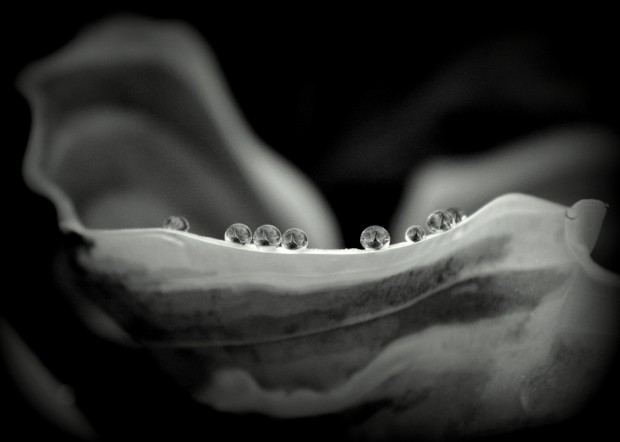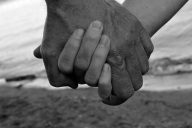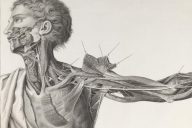“In the village, ancient baobabs grow pregnant with the bones of holy men and papered prayers, and in the city, small boys beg, tin cans to their elbow.”
It’s almost morning before my father stumbles home from his latest client and takes us to our spot in the mangroves. Swaying ankle-deep in saltwater, he rakes his fingers through the fine black mud, slow, like it’s tangled hair. He’s looking for oysters. “Marie Claires go nuts for this shit, boy,” he slurs, “Makes them want to fuck.”
He thumbs a shell clean and tosses it on shore, where I crack it open with a rock. He’s wearing new jeans, no shirt, flaunting the clean lines of muscle that keep us fed. I tell him I want to be just like him, and he laughs. I tell him I’ll farm, and he calls me a fool. “Fisher or farmer, bumster or priest, the Gambia—she’s a bitch to us all. Just look around.”
The land buckles under the weight of the rains that never came, though we begged. Life lies dormant in this bleached landscape, blank as a page until the first rains pen life from the ground. Yes, we remember the smell of rain at dawn–Inshallah, this year, this year–and afterwards, the hum of dusk, the cool gasp of night.
But meanwhile, students hitchhike to school on truckbeds, eyes closed and dry-mouthed, and, facing east, vendors perform their ablutions in single beads of water, kneading the damp. In the village, ancient baobabs grow pregnant with the bones of holy men and papered prayers, and in the city, small boys beg, tin cans to their elbow. Its contents rattle like dying breath, coins to secure paradise for anyone with spare change.
My father splashes back to me, jeans damp, and he tosses a few broken shells back into the water. “Toubabs always pay big money for love and war,” he says, “Be a soldier, kid.” A bumster by trade, he tells me he knows something of heaven and hell, and the real heaven exists at the bottom of a bottle and on the other side of the ocean with all the lonely white women.
*
Image courtesy Cast a Line.


















